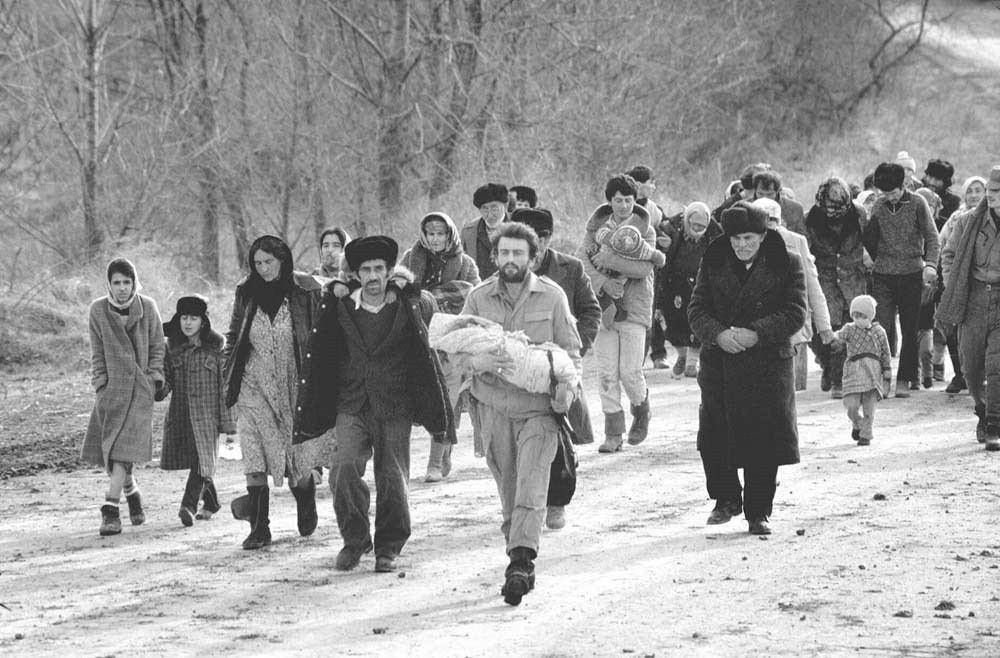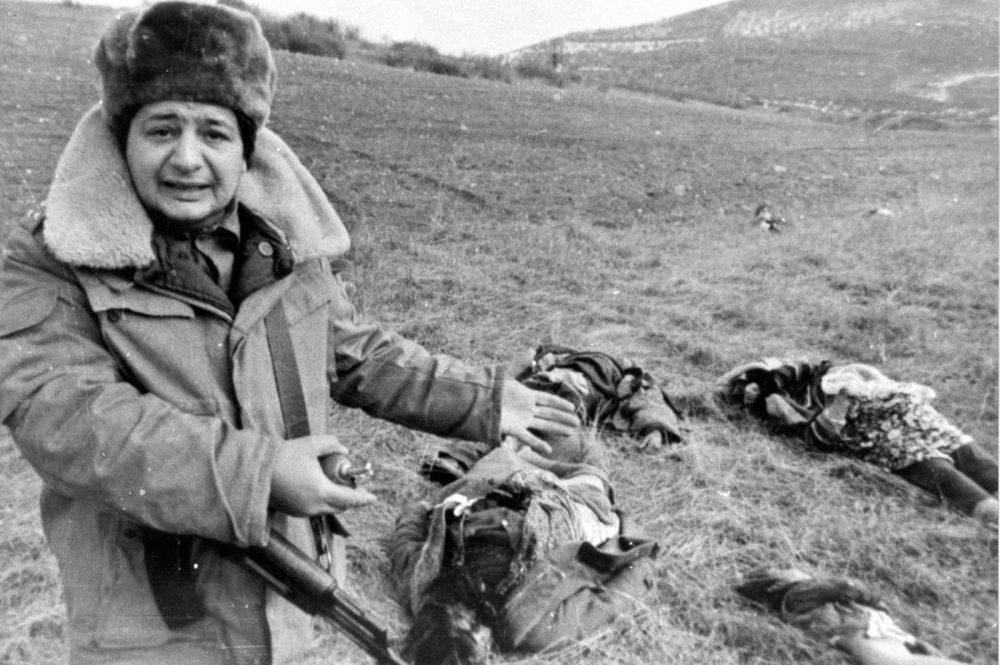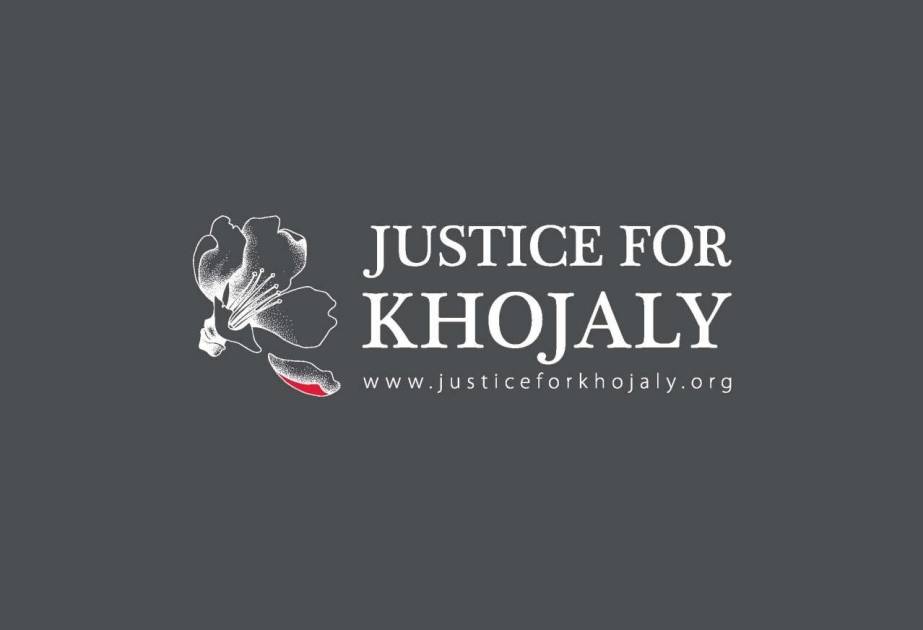Each year, at the end of February, the people of Azerbaijan come together to commemorate the victims of the tragic events that unfolded in Khojaly. Starting in October 1991, the town of Khojaly was surrounded by Armenian armed forces. On the night of 25-26 February 1992, following a heavy artillery bombardment, Armenian forces, assisted by the former USSR’s 366th Motorized Rifle Regiment, predominantly comprised of Armenians, seized control of Khojaly. Today, 33 years later, we remember the devastating events of that night, when innocent civilians lost their lives in an act of senseless violence. This day serves as a solemn reminder of the immense suffering endured by the people of Azerbaijan.
Following the Second Karabakh-Patriotic War in 2020, Azerbaijan’s full territorial integrity was restored in 2023, marking the culmination of a 30-year effort to regain the country’s occupied territories. The sacrifices of the victims of Khojaly, along with the broader tragedy, were not in vain, as Azerbaijan has worked to ensure justice for the victims and to hold those responsible for the atrocities accountable.
It is essential that the events of Khojaly are never forgotten. The Azerbaijani people are committed to educating future generations about these painful chapters in history, ensuring that the lessons of the past are preserved and passed on. By incorporating these events into the nation’s collective memory, literature, folklore, and culture, Azerbaijan seeks to ensure that such tragedies do not occur again.

Tragically, as the 20th century came to a close, crimes against humanity continued, leaving an indelible mark on the history of Azerbaijan. The Khojaly massacre remains one of the most poignant examples of the suffering endured by the Azerbaijani people. On 26 February 1992, an atrocity took place that claimed the lives of 613 individuals, including 106 women, 63 children, and 70 elderly people. A total of 1,275 citizens were taken prisoner, and the whereabouts of 150 remain unknown. The town itself was devastated, with 487 residents—76 of them children—suffering serious injuries. Entire families were destroyed, with 25 children losing both parents and 130 children left with only one. Additionally, 8 households were completely destroyed during the attack, causing irreversible damage to families and communities.
In addition to the destruction of social amenities and private residences, 14 schools, 29 libraries, 3 houses of culture, and 1 local history museum were destroyed during the occupation of the town. The cultural heritage of Khojaly, including tombs and buildings from the 14th and 15th centuries, was ruthlessly demolished
The scale of the suffering endured by the Azerbaijani people is a violation of international humanitarian law and fundamental human rights. Azerbaijan’s National Leader, Heydar Aliyev, repeatedly stated that the Khojaly tragedy is a “blood memory” for the Azerbaijani people. His leadership played a crucial role in raising awareness of these atrocities on the global stage, and in pressing the international community to recognize and address the injustice.
“With its unimaginable cruelty and inhumane methods of punishment, the Khojaly genocide directed against the Azerbaijani people as a whole is an atrocity in the history of mankind,” declared National Leader Heydar Aliyev. In 1994, under his leadership, the Milli Majlis (Parliament) of the Republic of Azerbaijan passed a resolution declaring February 26th as the Day of the Khojaly Genocide.

Efforts to bring international attention to the facts of Khojaly and to seek an impartial evaluation of these events continue today. Ms. Leyla Aliyeva, Vice-President of the Heydar Aliyev Foundation, has been a leading advocate for this cause through the “Justice for Khojaly” campaign, which she launched in 2008. Her dedication has been instrumental in raising global awareness, particularly among younger generations, about the significance of the Khojaly tragedy.
The new generation has inherited the responsibility of safeguarding the legacy of modern Azerbaijan, as established by the Great Leader Heydar Aliyev. It is the duty of every Azerbaijani citizen to contribute to the ongoing efforts to strengthen their country’s independence and uphold the values of its rich historical heritage.
In February 2024, after 32 years of occupation, His Excellency Mr. Ilham Aliyev, the President of the Republic of Azerbaijan laid the foundation stone for the Khojaly Genocide Memorial in Khojaly. During the event, he stated, “This is the first time we have commemorated the innocent Khojaly victims in Khojaly on the anniversary of the Khojaly genocide. We have returned to our native land to honor the memory of the victims of Khojaly. We took our revenge, showing professionalism, heroism, and selflessness during the 44-day Second Karabakh War and the one-day anti-terror operation. Today, we are rebuilding and restoring every corner of Azerbaijan and Karabakh as rightful owners and children of this Motherland.”

It is a moment of profound significance that the people of Khojaly are returning to their ancestral land after being displaced for over three decades. In tribute to those who lost their lives, Azerbaijan is committed to constructing new monuments, parks, and infrastructure to ensure that the memory of Khojaly is honored in a meaningful way.
Thus, the Khojaly Massacre, which occurred on 26 February 1992, remains one of the most tragic and significant events in the history of Azerbaijan. Today, the people of Azerbaijan are focused on securing international recognition of the Khojaly genocide and ensuring accountability for those responsible for the crimes committed. The Khojaly Massacre has been officially recognized by the Azerbaijani government as an act of ethnic cleansing, and it is a day of mourning for the Azerbaijani people. Various governments and organizations around the world have condemned the violence, calling for justice and acknowledgment of the tragedy. The people of Azerbaijan continue to hope that the rights of the victims will be honored and that such atrocities will never happen again.